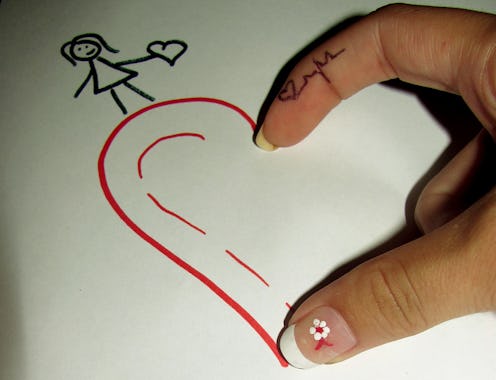Life
The Wonderful Science of Love

Anything you've ever needed a scientific explanation for is likely an experience not easily understood; the science of love, for example, is a widely sought-after realm of knowledge. But that's where AsapSCIENCE comes in: Their video exploring exactly what's going on in our bodies and brains when we're in love may date back to 2013, but it's always relevant — especially since we just wrapped up our Valentine's Day celebrations.
When it comes to love it's often difficult to control our impulses, compulsions and behaviors. Perhaps as a teen you knew you really shouldn't have followed Bobby around town in your old Volkswagen, just to see how his day was going. You also knew that if you didn't you would "like, totally implode, Kelly," and that was that. Love doesn't always lend to the most sound of decision-making. After all, any experience that looks scientifically similar to being on one of the world's favorite fluffy white stimulants is going to be running amok with your emotions.
AsapSCIENCE's content is pretty fascinating as a whole, providing much-desired tangible explanations for some of our most interesting human behaviors, like porn addiction and whether periods actually make women moody. At over 3 million subscribers, it's clear we're not the only ones interested in learning all the things. At times, applying scientific explanations to occurrences that frustrate, bewilder and baffle us is the only way to stay sane. As if to say, "I know eating those 12 girl scout cookies was a poor decision but it's not my fault, it's science."
Here are four things we learned from AsapSCIENCE's "The Science of Love" video; scroll down to watch the whole thing:
1. Our brains on love look the same as our brains on cocaine.
We're also less likely to feel upset or bothered by anything when we're in love, because the pain and aversion centers in our brains don't fire as much.
2. Our brains behave similarly when we're looking at someone we love and when we're having orgasms.
Our brains release the hormones dopamine and norepinephrine both when we're having sex and when we're gazing at someone we love. Romantic love will also encourage motivation, craving, and desire to be with the object of our affections.
3. Learning is easier when we're in love.
The pleasure centers that cause those feelings of love are part of the brain's reward system, the mesolimbic dopamine system. This area of the brain, when stimulated, allows for the easy retention of information when studying because we associate learning with pleasure.
4. There's a reason we get all obsessive when we're in love.
People in love have low levels of serotonin, which likely causes our infatuated and obsessive states during those first few weeks or months.
Watch below to feel better about life as a whole:
Images: HeyDanielle/Flickr; AsapSCIENCE/YouTube (3)